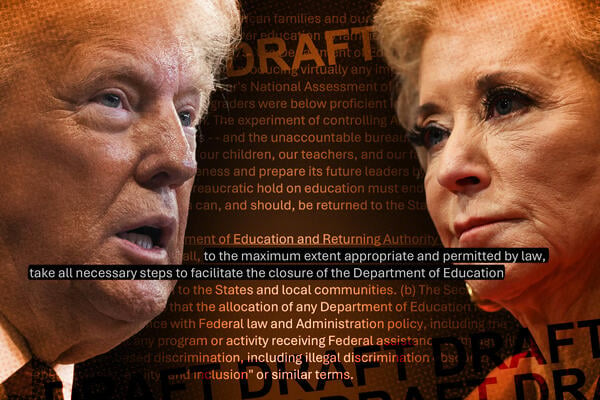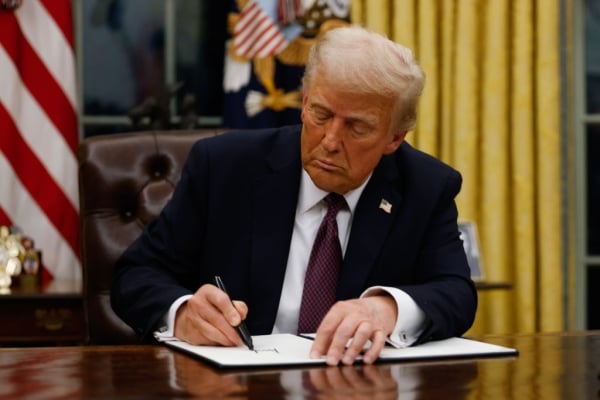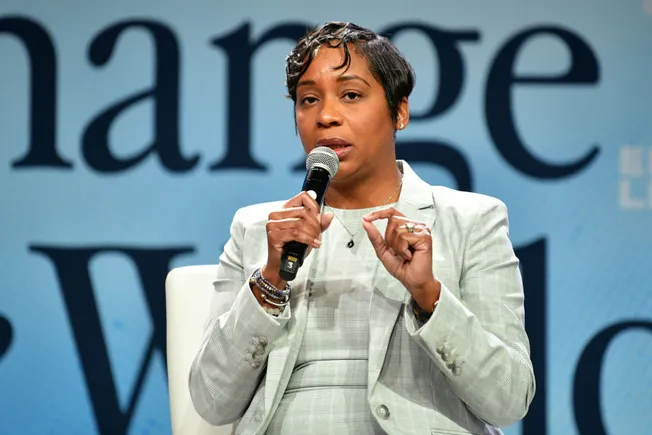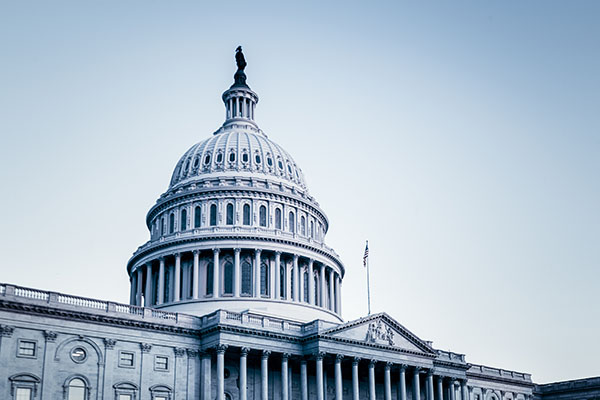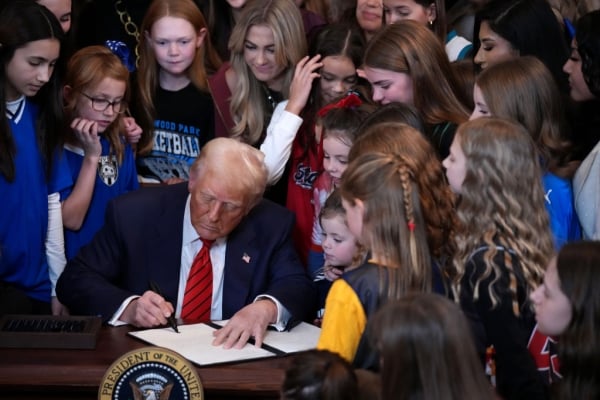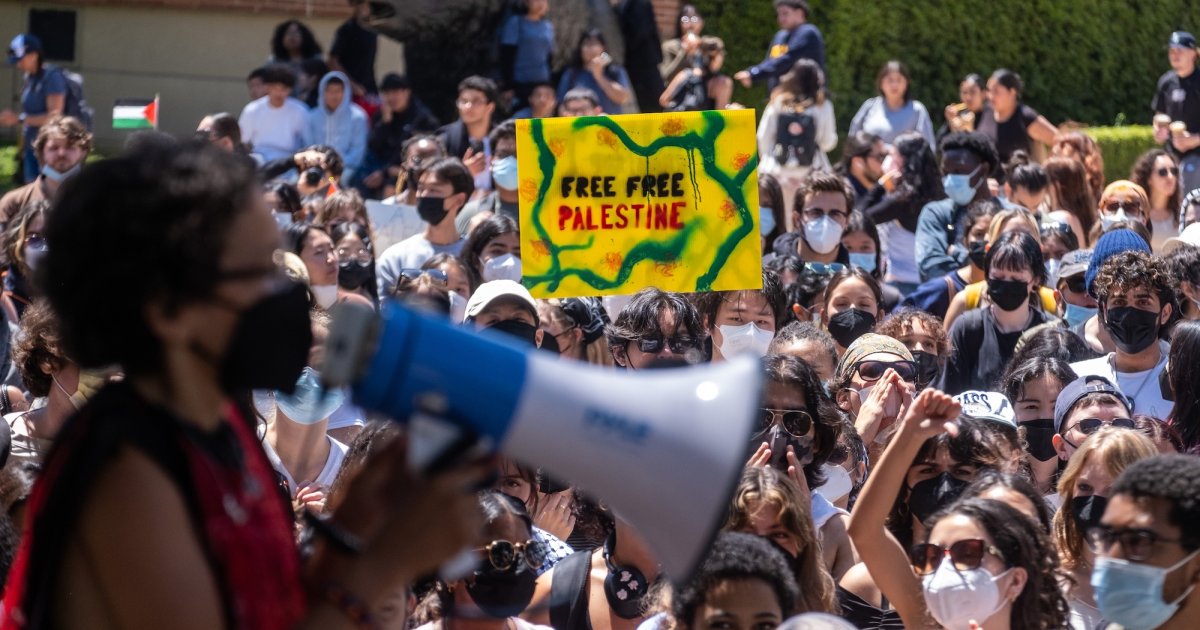A draft executive order obtained Thursday by Inside Higher Ed directs the newly confirmed education secretary, Linda McMahon, to “take all necessary steps” to return authority over education to the states and facilitate closure of the Department of Education “to the maximum extent appropriate and permitted by law.”
If signed, the order—which has been rumored for weeks but is not yet official—would be the first step in carrying out the president’s controversial campaign promise to abolish the 45-year-old department, which he believes is unconstitutional and has grown too large.
Several media outlets reported Wednesday night that Trump would sign the order as soon as Thursday, but shortly after the news circulated, White House press secretary Karoline Leavitt posted on X, “President Trump is NOT signing an Executive Order on the Department of Education today” and called the reports “fake news.”
Still, the reports set off a wave of comments from advocates and analysts. Liberals warned that shutting down the Education Department would be devastating for families and students, while conservatives backed Trump’s plan and said the draft order was key to cleaning up the agency.
McMahon, who took office Monday and will spearhead the closure effort, is supportive of overhauling the agency. She told department staff earlier this week to prepare for a “momentous final mission” to eliminate “bureaucratic bloat” and return education to the states.
Although vague, the secretary’s memo and the draft executive order give policy experts some idea of what could come next.
At the very least, they expect to see a major reduction in staff and a diminished federal role in education; some of that work is already underway. The agency has slashed millions in contracts and grants as well as fired dozens of employees. A larger reduction in force is also in the works, fueling concerns among department staff.
“There is probably not going to be anything in [the order] that isn’t already happening, largely,” said Kelly McManus, vice president of higher education at Arnold Ventures, a philanthropic group. “The secretary’s final mission was clear … so I’m not particularly worked up about the EO specifically, because I don’t think it’s going to fundamentally change that.”
Abolishing the department would require an act of Congress, which McManus said the draft order appears to acknowledge. She and other experts say any effort to close the department will be lengthy and complicated.
“This is not a flip-on, flip-off situation here,” she said. “Practically, there will have to be a process … You cannot shut the doors tomorrow and be done.”
The 416-word draft order gives little detail as to what the “steps” of dismantling the department are or what would happen to certain congressionally mandated programs such as the Pell Grant, the student loan system or the Individuals With Disabilities Education Act. However, the document does say that any funds allocated by the department should comply with federal law, including Trump’s previous orders on diversity, equity and inclusion and transgender athletes—both of which have been caught up in court.
Neither Trump nor McMahon has so far offered any plan outlining how closing the department would work, though some conservative plans recommend moving the Office for Federal Student Aid to the Treasury and sending the Office for Civil Rights to the Justice Department.
More than 4,000 people currently work for the department, which was created in 1979 and now has a $80 billion discretionary budget. Each year, the agency issues about $100 billion in student loans and doles out more than $30 billion in Pell Grants.
Shutting down the department isn’t popular with voters, recent surveys have found. One recent opinion poll found that 61 percent of all respondents “somewhat” or “strongly” opposed the idea of eliminating the department. Another showed that up to 72 percent either opposed the plan or weren’t sure how they felt. That number was 49 percent among Republicans.
Minimizing a D.C. ‘Footprint’
Trump has signaled for months, if not years, that he wants to shut down the Education Department, and many analysts have already taken a position on the issue.
To Michael Brickman, an adjunct fellow at the conservative think tank the American Enterprise Institute, nothing about the draft was a surprise. Like McManus, he noted that much of what the order directs McMahon to do is already underway.
Brickman expects the next steps will focus on finding new and “better” ways to maintain the department’s core functions as required under law with “less funding, less staff and possibly in conjunction with other agencies.”
“I don’t think anybody’s talking about cutting major programs,” he said, referencing financial aid services like the Pell Grant and disability protection acts like IDEA. “So the question will be, what is required under law? What can Congress change? And how can the department streamline things to minimize the footprint in D.C.?”
Shutting down the Education Department likely would be disruptive for colleges and students, advocates say.
J. David Ake/Getty Images
McManus stressed that it will be important to protect these core functions, especially the ones related to higher ed, saying it doesn’t make sense to send them back to the states.
“What is most important is that those core statutory functions have the people, capacity and expertise to be able to do effective oversight of how taxpayer dollars are being spent,” she said. “We are significantly less concerned about where those people sit, as long as there is the ability to safeguard taxpayer investments and to make sure that programs that are statutorily required and that have had long bipartisan support, like Pell Grants, are being effectively implemented.”
In Brickman’s view, some of the department’s regulatory operations, like analyzing and creating reports on grant or contract applicants and managing third-party accreditors, are simply “make-work.” By hiring hundreds of staff members to execute these tasks, he said, the department pulls tax dollars from local governments and then forces those same communities to spend more writing grant proposals to get it back.
“There’s just a lot of work and churn that evidence shows does not lead to improved student outcomes,” he said.
But when asked what the Trump administration has done to convince stakeholders he not only intends to tear down the department but also build it back up again, Brickman didn’t directly answer the question. Instead, he referenced actions of the Biden administration.
“The Biden administration broke the entire Federal Student Aid system on purpose … They were trying to illegally turn the trillion-plus-dollar portfolio from a loan program into a grant program,” he said. “That is not what the Trump administration is doing. The Trump administration has tried to improve these programs and make them actually work again.”
Although what Biden did was “unfortunate,” Brickman said, it also creates an opportunity.
“This mess isn’t being created; it’s being responded to,” he said. “I hope institutions that may be predisposed to oppose anything coming from the Trump administration will welcome this as the end of a failed experiment that just put more restrictions on teaching and learning.”
Democrats Push Back
Meanwhile, Democratic lawmakers, student advocacy groups, civil rights organizations and left-leaning think tanks warn that Trump has no intention of rebuilding, only dismantling. The American Federation of Teachers, a key higher ed union, said the order is a government attempt to “abdicate its responsibility to all children, students and working families.”
Randi Weingarten, the union’s president, recognized in a statement Wednesday night that there are certainly ways the department could be more efficient, but she implied that’s not Trump’s goal.
“No one likes bureaucracy, and everyone’s in favor of more efficiency, so let’s find ways to accomplish that,” she said. “But don’t use a ‘war on woke’ to attack the children living in poverty and the children with disabilities, in order to pay for vouchers and tax cuts for billionaires.”
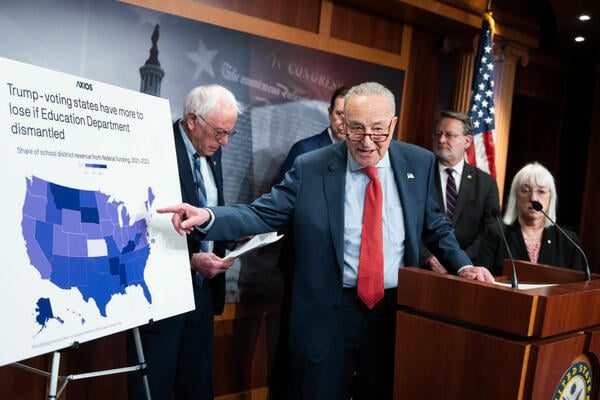
Senate Democrats criticized the pending executive order to abolish the Department of Education as a press conference Thursday.
Tom Williams/CQ-Roll Call Inc. via Getty Images
Senator Patty Murray, a Democrat from Washington State, blasted the Trump administration’s plans at a press conference Thursday. She said that Trump and his unelected government efficiency czar Elon Musk “don’t know what it’s like to count on their local public school having the resources to get their kids a great education … And they don’t care to learn why. They want to break the department, break our government, and enrich themselves.”
To the American Association of University Professors, “dismantling the Department of Education would hasten us into a new dark age.”
Former Biden under secretary James Kvaal told Inside Higher Ed that the draft order should dispel any notion that Trump is not trying to shut down the department. But at the same time, he said, the GOP administration’s approach to doing so has been “schizophrenic” and “inconsistent.”
“It can’t be true that students of color and with disabilities will have their civil rights protected, but also the federal government is not going to be involved in those decisions,” he said.
But at the same time, Kvaal and others note that, ultimately, the Trump administration lacks the legal authority to actually close the Department of Education, making full abolishment more complicated than the president suggests.
Shuttering the agency would require 60 votes in the Senate as well as a majority in the House, as the department’s existence is written into statute. And with a 53-seat majority in the Senate, Republicans don’t currently have the votes unless some Democrats back the plan.
“[The Republicans] don’t have the votes to close the department, and they already plan to enforce their plans on DEI, so it’s not clear what the EO adds to that,” Kvaal said. “It’ll get sorted out in the courts.”

